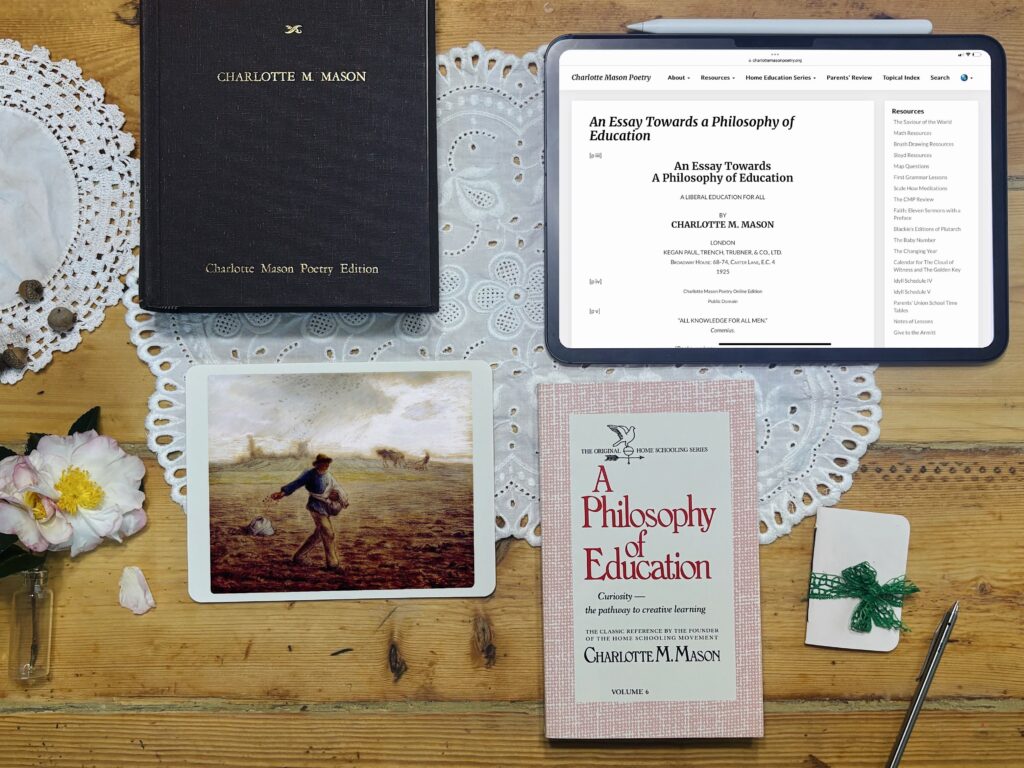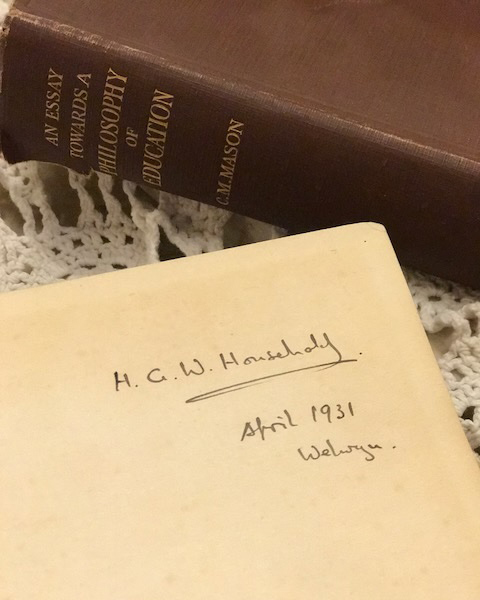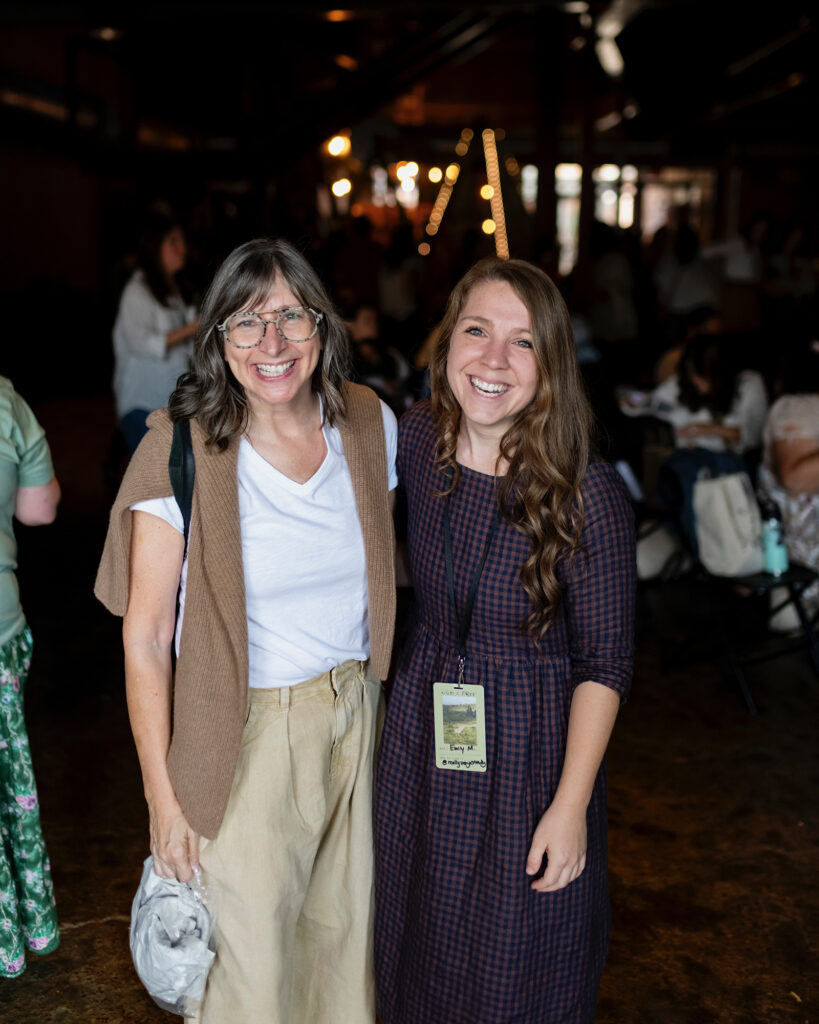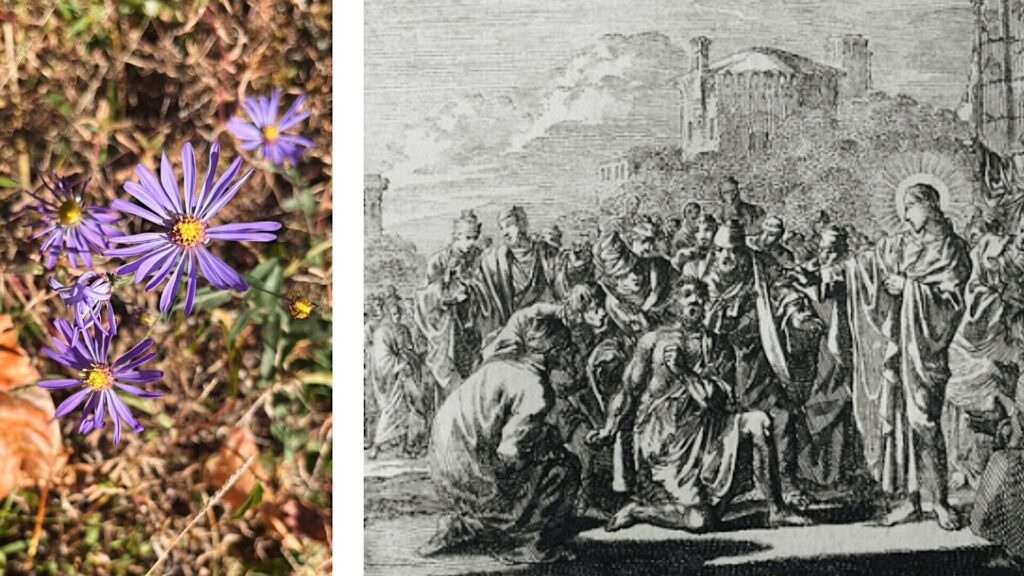The CMP Review — Week of October 21
October 21, 2024

“It may take time and patience, but one of the most rewarding jobs in a busy mother’s life is to find for her children the books which will give them real pleasure.” (Jane Carruth, PR69, “What Are Your Children Reading?”)
@tessakeath
October 22, 2024

The year was 1906. The Home Education Series was finally complete. Five matching volumes with dark green covers and gilded letters. A method of education had been fully documented. A life work was complete. Now Miss Charlotte Mason could finally move on to other tasks.
But something else happened in 1906. A different seed was planted, a seed that would grow at an astonishing rate. It was not planted in Mason’s English soil, but it would grow until its branches reached the ends of the earth.
We rarely forecast our circumstances; we rarely choose them; we rarely control them. But there is one thing we can always control: our response.
Mason reached for her pen and got to work. The last word had not been said after all. It was time to write an essay. An essay bigger, bolder, broader than the series that came before. An essay to call out to England and to call out to the world. An essay for the ages. An essay towards a philosophy of education.
Read the electrifying story of Charlotte Mason’s final volume, a story that ends with an important announcement. Find it here.
@artmiddlekauff
October 23, 2024

“Wondrously beautiful are the prevailing tints of October, the mingling of red, gold, and brown producing the tawny look described by Richard Jefferies, ‘The tawniness is indistinct, it haunts the sunshine and is not to be fixed, any more than you can say where it begins and ends in the complexion of a brunette…’”
Thus begins Florence Haines description of fall colors, followed by a rousing narrative of why and how trees lose their leaves.
Follow the link to read or listen to “A Walk in October” before going on your own autumn nature walk.
@rbaburina
October 24, 2024

“This, Miss Charlotte Mason’s last book, which she did not live to see in print, in many ways sums up her teaching and her message. It is a book of much wisdom, and refreshing alike for its respect for children and for its respect for experience.” — The Teacher’s World
When An Essay Towards a Philosophy of Education was first published In 1925, reviews appeared in The Statesman, The Irish Statesman, The Observer, The Teachers’ World, The Journal of Education, The Glasgow Herald, The Schoolmaster, The Church Times, Time and Tide, The Daily News, The Cape Times, The Guardian, and The Times of India. Portions of these reviews, were collected and printed in the October and December issues of the Parents’ Review.
How was Mason’s magnum opus received by the educational authorities of her day? In celebration of the release of the Charlotte Mason Poetry Online Edition of the book, we’re also releasing a transcription of the fifteen reviews collected and published in 1925. Relive the excitement of the first appearance of this volume here.
@artmiddlekauff
October 25, 2024

“What do we see when we go outside and look at the world? Has it become so familiar to us that we pay no attention to it at all? Or perhaps when we look at the blue sky do we think of the refraction of light? When we notice the sun, do we think of a nuclear furnace? When we see a fox in a zoo, do we think of what we learned in biology class about its bones and organs? And beyond this, when we step back and view the world, how do we see it? Blue sky, green fields, brown earth, blue water — does this set of images mean anything at all, or is it ‘just the way things are’?”
······
“Ultimately, all non-Christian philosophy assumes that the universe is untreated and made of neutral ‘Being.’ Such a universe is silent. For the Christian, however, the universe is created by God, and constantly speaks of Him…
“Let us return, for a moment, to the question we raised at the beginning of this chapter: Why this world with all this diversity? Why not just man and God, interfacing together, with man growing and developing from this interaction? I believe the answer to this, in part, lies in the fact that God is infinite and man is finite. We simply cannot grasp God’s infinite tri-personality all at once. For this reason, God chose to reveal the infinity of His personality in the diversity of this world. Various things in the world reveal various things about God. As we interface with these different things in the world, we are indirectly interfacing with God, who is revealed in them.”
— James B. Jordan, Through New Eyes
@artmiddlekauff
📷: @dave_stillwell
October 26, 2024

Hey, homeschooling can be a tough gig and we might tend to take ourselves a bit too seriously. Sometimes we just need to relax, loosen up a bit, and laugh at ourselves.
Do you follow @reallyverycrunchy —aka Emily Morrow? She’s perfect for helping you do just that. And she’s also such a kind, encouraging, and generous person.
Does she make you belly laugh, too?
@rbaburina
October 27, 2024

According to Lawrence R. Farley, “The title Beelzebul originally derived from the Hebrew baal zebul, ‘lord of the house,’ referring to the pagan god Baal. The title was later transformed into the derisive baal zebub, ‘lord of the flies,’ in 2 Kings 1:2, and at the time of Jesus it was used as a title for Satan.”
When Jesus cast out a demon, the Pharisees “did not deny that a demon had been cast out,” explained Farley, “but they attributed Jesus’ power to Satan.”
In her poem “One possessed with a devil,” Charlotte Mason captures the chaos and fear of the scene. Equally she captures the serenity when the Lord of all brought peace to a soul. Read or hear her poem here.
@artmiddlekauff